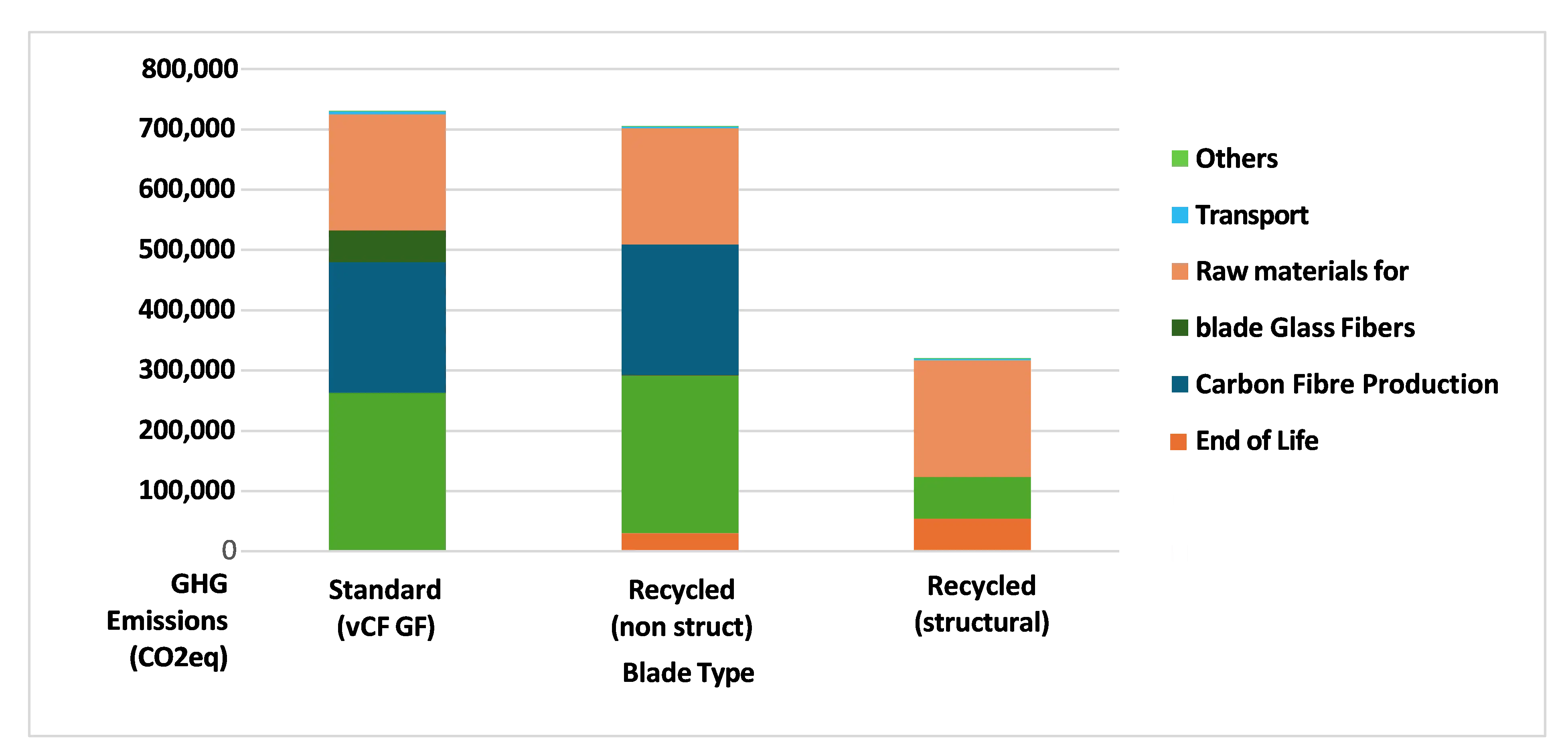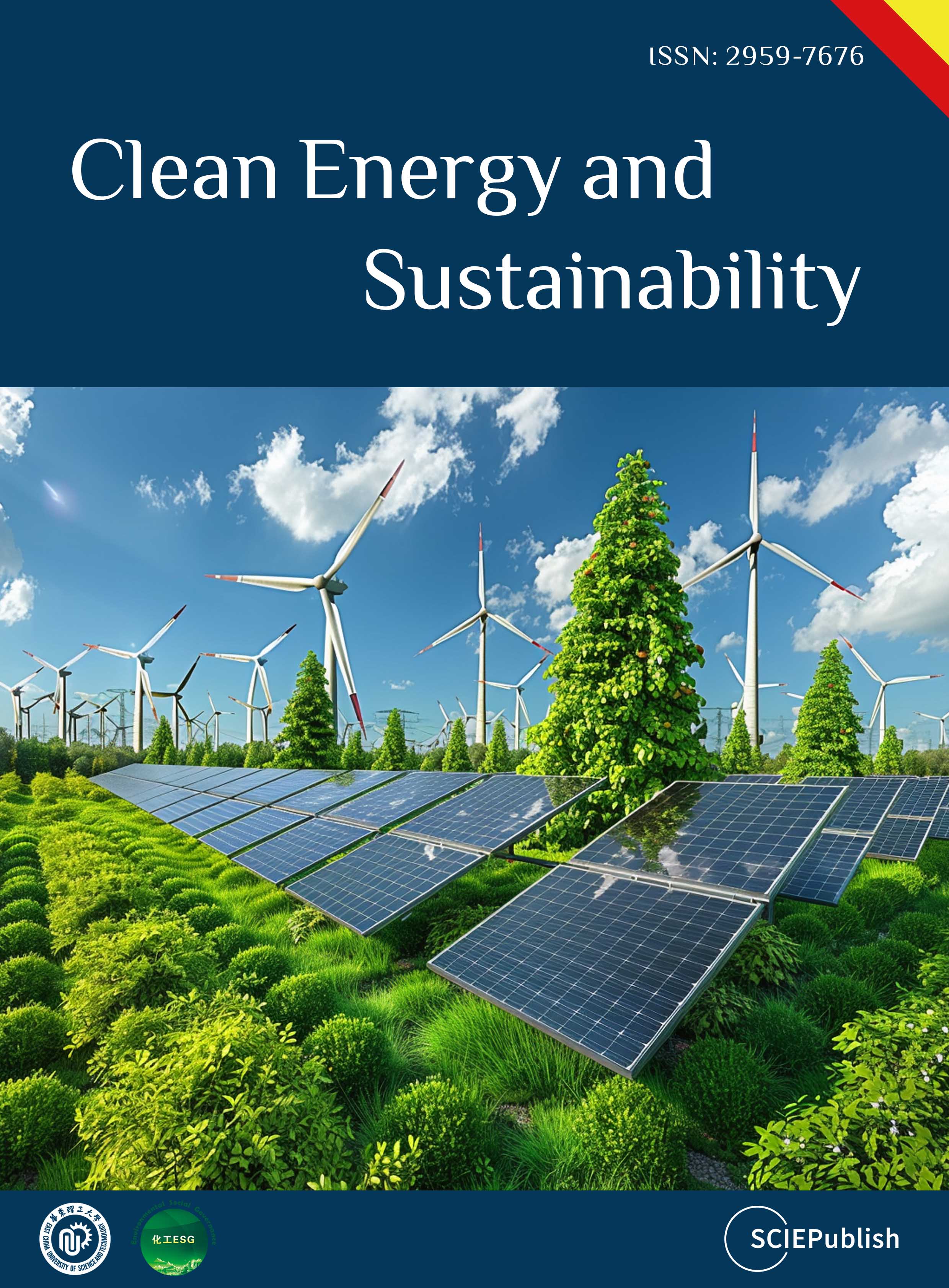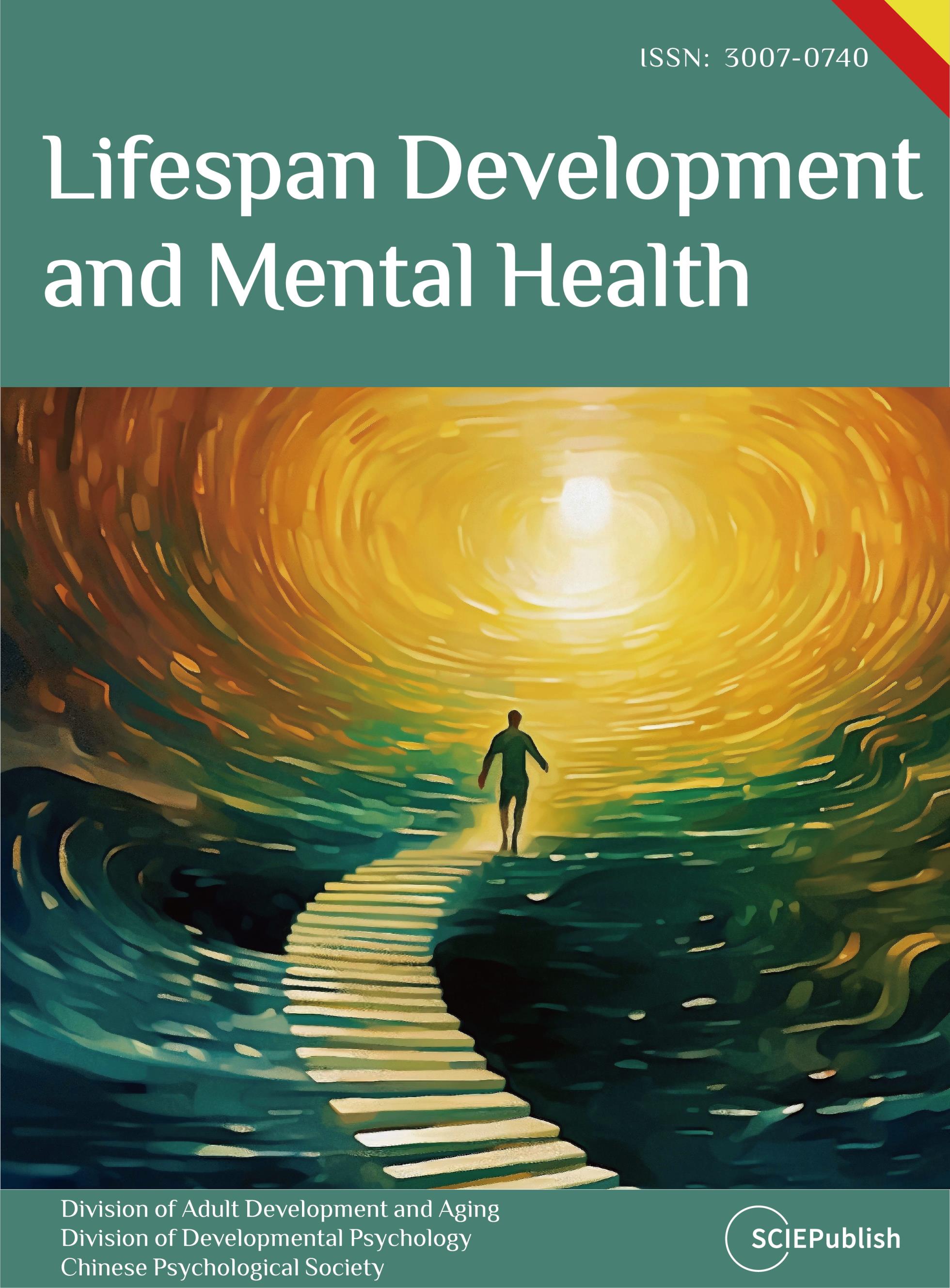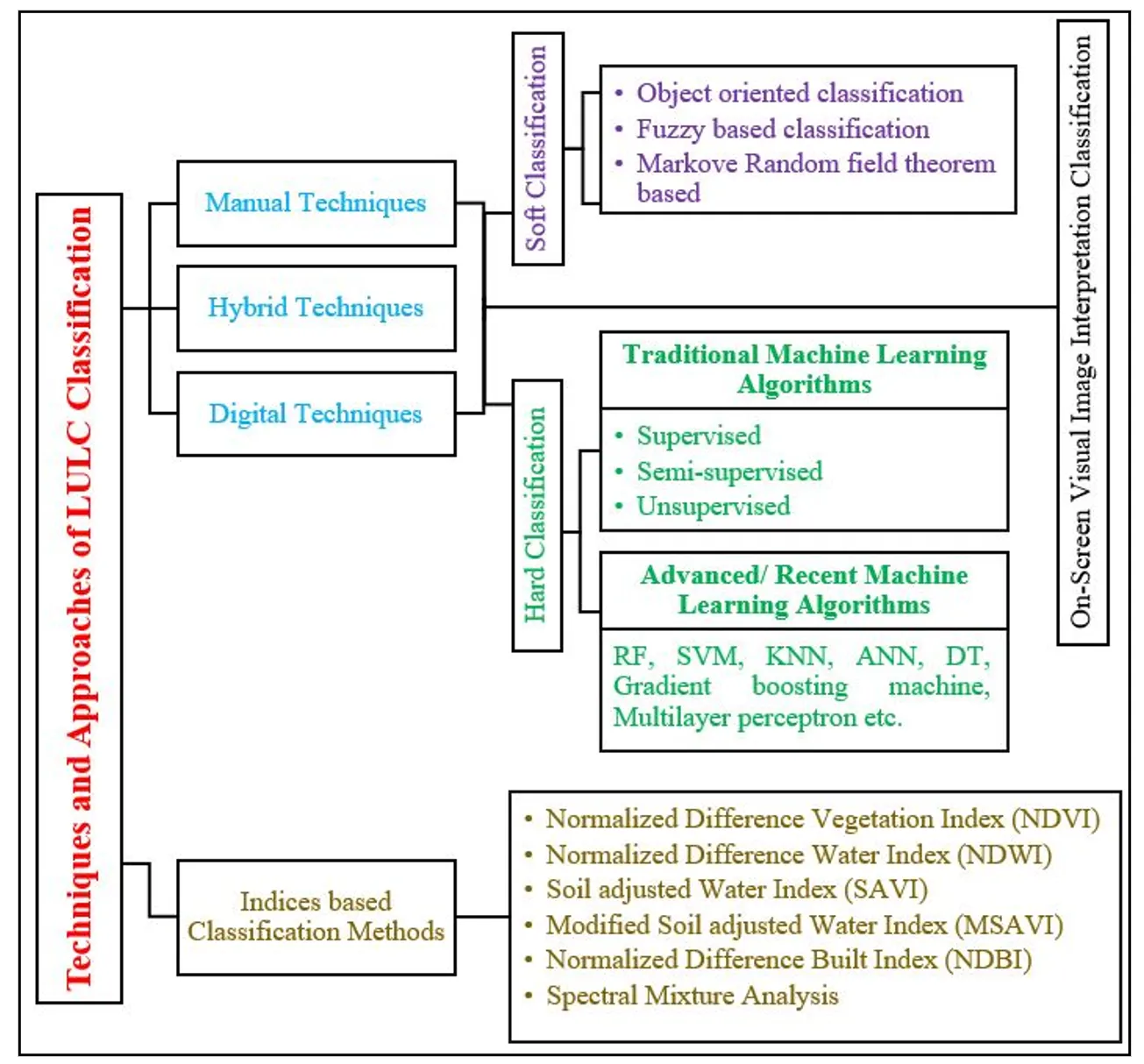Found 27 results
Open Access
Article
19 January 2026Life Cycle Assessment of the Emissions Reduction Potential of Recycled-Carbon-Fibre for Western-Australian Offshore Wind Turbine Blades
The objective of this study is to conduct a review of recycled-carbon-fibre (rCF) wind turbine blades’ feasibility, through a comparison of global and Australian wind sector waste, and a comparison of virgin-carbon-fibre (vCF) with rCF wind turbine blades’ greenhouse-gas GHG-emissions, and, recommend an approach for carbon-fibre CF-use in the fledgling Australian offshore wind industry, based on global-warning-potential GWP. This study assesses the life-cycle GHG-emissions of virgin-carbon-fibre wind turbine blades versus recycled-carbon-fibre wind turbine blades, in both non-structural and structural configurations. All production, use and recycling is assessed in terms of a West Australian context, in which the functional unit is three turbine blades used on an onshore wind farm, towards potential applicability for (as yet, non-existent) offshore WA fields. An approach incorporating a GaBi/Sphera database-study provides a timely screening/preliminary study, in which it was found that non-structural recycled carbon fibre wind turbine blades had very similar GHG emission levels compared to standard virgin carbon fibre blades, with sensitivity analysis revealing that in worst-case scenarios, non-structural carbon fibre has higher GHG emissions. Structurally recycled carbon fibre blades performed significantly better than standard virgin carbon fibre wind turbine blades with a 56% reduction in GHG emissions; savings were not affected significantly by parameter changes during sensitivity analysis. It is evident that recycled-carbon-fibre can significantly reduce wind turbine blades’ GWP and contribute to the circular economy in the fledgling West Australian offshore-wind-turbine sector.

Open Access
Review
15 January 2026Renal Aging and Fibrosis in the Elderly: Frontiers in Non-Invasive Assessment
Today’s society has gradually entered an aging phase, and among the elderly population, the risk of chronic kidney disease (CKD) is significantly increased. Renal fibrosis is the key pathological mechanism for the development of chronic kidney disease to end-stage renal disease. With the increase in age, the phenomenon of glomerular sclerosis and interstitial fibrosis in aging kidneys gradually aggravates, and the glomerular filtration rate (GFR) decreases, further affecting renal function. Fibrosis not only accelerates the loss of renal function but also significantly increases the risk of cardiovascular disease, which seriously affects the quality of life and life expectancy of patients. This paper reviews the relevant literature and discusses the characteristics of an aging kidney and the diagnostic methods for renal fibrosis.

Open Access
Article
01 December 2025Preparation, Characterization and Performance Assessment of Metal Complexes of Curcuma longa Extract as Sensitizers for Dye-Sensitized Solar Cells
The dye extract of Curcuma longa (turmeric), which is very rich in curcumin, was chemically modified by complexation reaction with Zn2+, Cu2+, and Fe3+ ions to enhance its stability, electron transfer and photovoltaic performance. The dye and complexes were characterized by Ultraviolet-Visible (UV-Vis) absorption and Fourier Transform Infra-Red (FTIR) spectroscopy of potential chromophores and functional groups. The spectral data obtained indicated that the curcuminoid ligands were successfully coordinated with the metal centers, resulting in red-shifted absorption bands from beyond 460 nm and C=O vibrational frequency decreasing below 1650 cm−1. Complexation reaction resulted in improved photochemical response and enhanced light-harvesting potential. When compared, the solar cells fabricated with titanium dioxide (TiO2) photoanodes sensitized by the complexes afforded improvement in the magnitude of short-circuit current density as well as power conversion efficiency compared to the devices sensitized with the crude extract. Among the three complexes, the Zn-complex afforded the highest efficiency (1.20%), attributed to favourable electronic coupling and reduced recombination losses. Computational studies conducted through quantum chemical calculations based on the curcumin structure supported the experimental findings. The findings from this study demonstrate that metal ions-natural dye complexes have potential for application as low-cost, eco-friendly and sustainable sensitizers, thereby opening a novel horizon in green photovoltaic technologies.

Open Access
Review
17 November 2025Self-Directed Learning Across the Lifespan Regarding Psychological Flow—A Topical Assessment of Recent Publications with High Recall and High Precision
Csikszentmihalyi’s psychological flow and self-directed learning have a well-researched and direct connection. Lacking is an investigation of this relationship across the lifespan—the aim of this review. A search of seven primary databases and one supplementary database (searched eight different ways) with the keywords “self-directed learning, lifespan, psychological flow”—for English-language empirical research studies in peer-reviewed publications—provides this assessment of recent publications with high recall and high precision. The hypothesis is that distinct topics are recognizable, concerning the relationships among self-directed learning, lifespan, and psychological flow, regarding how self-directed learning promotes psychological flow throughout the lifespan. As a quasi-scoping review, the standardized PRISMA-ScR is the methodology. The supplementary database search, without Boolean functions, and yielding the highest returns, produced the five results included. Corroborating the hypothesis, three Csikszentmihalyi-inspired topics synthesize the results: (1) feeling better in the moment, (2) body and mind are in harmony, and (3) improving the quality of life. Based on the synthesis, the level of meaning the learner ascribes to their work determines the relationship among the three keywords. The conclusion is that the relevance of flow to self-directed learning throughout the lifespan depends on learner engagement in supporting their work-related purpose and meaning regarding the learning material.

Open Access
Communication
24 October 2025Investigating Potential PFAS Emissions from Initial Electrolyzer Operation
The fluoropolymers used in proton exchange membrane (PEM) water electrolysis are part of the broad OECD definition of per- and polyfluoroalkyl substances (PFAS), a family of substances subject to increasing regulation. Potential PFAS emissions during commercial operation have been investigated in PEM fuel cells, but have not been reported for PEM electrolyzers. Based on previous measurements of fluoride release rates in water, potential emissions of fluorinated substances are likely to be detectable during the onset of stack operation. This observation is extended to evaluating potential PFAS emissions by collecting and analyzing recirculated water samples from a multi-megawatt PEM electrolyser plant in the first ~2 weeks of operation. No PFAS substances were detected using U.S. EPA Method 1633, consistent with the lack of observed degradation based on cell voltage and fluoride measurements. Methodologies for selecting and handling water samples were established. Minimizing gas crossover and maintaining water quality during electrolyzer operation can mitigate potential chemical degradation via hydroxyl radical formation. Implementing dual uses of the reverse osmosis deionization system to provide water and wastewater treatment can increase closed-loop operation and minimize potential PFAS emissions from wastewater.

Open Access
Article
20 October 2025Divergent Aging Mechanisms of Calcium Arsenic Residue under Dry-Wet and Freeze-Thaw Cycles: Toxic Metal Mobility, Multiscale Physicochemical Characterization, and Escalated Ecological Risks
This study investigates the long-term mobility and ecological risks of As, Zn, and Cd in calcium arsenic residue (CAR) under simulated dry-wet (DW) and freeze-thaw (FT) cycles. Accelerated aging experiments, combined with multiscale characterization (XRD, XPS, SEM, FTIR), revealed distinct transformation mechanisms. DW cycles promoted carbonate-driven dissolution, As(III) oxidation to As(V) (resulting in an 18.4% increase in As(V) as shown by XPS), and sulfide oxidation (with reductions of 47.7% in ZnS and 15.08% in CdS). These processes increased the acid-soluble metal fractions (F1: As by 11.3%, Zn by 6.0%, and Cd by 8.7%) and metal release rates (52.39% for As, 42.63% for Zn, and 68.55% for Cd under DW conditions). In contrast, FT cycles induced mechanical fracturing and ice-mediated stabilization, which limited ion migration, partially amorphized ZnO, and promoted the precipitation of Cd(OH)2. Ecological risk assessments indicated rising risks, with integrated potential ecological risk indices (IPER) reaching 11,187.85 under DW conditions and 10,668.29 under FT conditions, with arsenic contributing over 80%. The Risk Assessment Code (RAC) reclassified all metals into moderate-risk categories (As: 11.9–19.7%, Zn: 9.4–15.2%, Cd: 12.1–18.6%). Weibull modeling (α = 6.98–10.98, R2 > 0.96) described the nonlinear kinetics, showing that cadmium aged the fastest (λ: Cd > As > Zn), with delayed but persistent risks under FT conditions. These results underscore the importance of developing climate-resilient stabilization strategies. The integrated framework combining mineral evolution, kinetics, and risk forecasting offers significant insights for managing legacy CAR pollution under changing climate conditions.

Open Access
Case Report
09 October 2025A Case Report of Telehealth Assessment for Adolescent Anxiety, Depression and COVID-Related Grief
Rates of anxiety and depression in children and adolescents have steadily risen over the past decade, and the arrival of COVID-19 exacerbated existing psychological problems for many youth. In the context of these increased rates and the pandemic lockdown, telepsychology, including virtual assessment, evolved as a cornerstone of mental health practice. There are salient benefits to telepsychology, most notably its convenience and accessibility, which have contributed to its expanded application across different types of problems and populations. At the same time, it can pose challenges in acquiring a comprehensive picture of client functioning. This article presents a case study of an adolescent with combined anxiety and depression who was referred for teletherapy during COVID-19, with an emphasis on the assessment intake. Results from a multi-method approach to the assessment are provided along with a brief discussion of treatment and future implications for the practice of telepsychology with youth and families.

Open Access
Opinion
29 September 2025Modeling Cardiac Response to Transient Hemodynamic Changes: Beyond dp/dt Max and New Insights from IVCO and ES Point Analysis
Traditional indices such as dp/dt max remain widely used in assessing ventricular contractility, yet their load-dependence limits clinical precision, particularly during dynamic hemodynamic shifts. This letter to the Editor advocates for a more physiologically grounded approach using dual pressure catheters equipped with two high-fidelity sensors, one in the left ventricle (LV) and one in the aorta, to capture real-time pressure gradients and valve events with high temporal resolution. When combined with transient inferior vena cava occlusion (IVCO), this setup enables accurate identification of the true end-systolic (ES) point, typically marked by dp/dt min or the dicrotic notch on the aortic pressure waveform. This method allows for the construction of more physiologically valid end-systolic pressure-volume relationships (ESPVR). It introduces the novel peak pressure end-systolic pressure-volume relationship (PPESPVR) model, which links peak LV pressure to the ES point within a single cardiac cycle. The resulting volume intercept (Vint) and end-systolic fraction (ESF) offer new insights into myocardial performance under varying preload and afterload conditions, without requiring extensive hemodynamic manipulation. This dual-sensor approach not only enhances diagnostic accuracy but also opens the door to real-time, patient-specific contractility assessment in both research and clinical settings.

Open Access
Article
26 September 2025Land Use and Land Cover Assessment of Jalandhar, India: A Comparative Analysis of Machine Learning and Visual Interpretation
For the sustainable management of natural resources and to understand how the climate affects the landscape, accurate land use and land cover (LULC) classification is essential. Robust classification techniques and high-quality datasets are necessary for precise and effective LULC classification. The effectiveness of various combinations of satellite data and classification techniques must be carefully evaluated to help choose the optimal strategy for LULC classification, given the growing availability of satellite data, geospatial analysis tools, and classification techniques. This study focuses on the LULC classification of Jalandhar, Punjab, India, using machine learning (ML) algorithms and visual image interpretation. Sentinel-2 satellite data, with its high spatial and spectral resolution, has been utilized for feature extraction and classification. Python was employed for implementing various ML algorithms, including Random Forest (RF), Support Vector Machine (SVM), K-Nearest Neighbor (KNN), Gradient Boosting (GB), Multi-Layer Perceptron (MLP), and Decision Tree (DT), while ArcGIS was used to classify LULC using visual image interpretation and for maps preparation. Agriculture was the dominant class across all methods, with GB estimating 1774.26 sq.km, followed by plantation (268.13 sq.km) and built-up areas (171.76 sq.km). Waterbodies were mapped with high precision due to their distinct spectral features, with estimates ranging from 18.34 sq.km (GB) to 26.05 sq.km (Visual interpretation). Among all models, GB outperformed others with the highest overall accuracy (95.0%) and a kappa value of 0.94, followed by RF (94.2%), and SVM (93.8%). Visual interpretation achieved a comparative accuracy of 90.1%, though it showed limitations in distinguishing spectrally mixed classes like plantation and built-up. This study concludes that while Visual interpretation remains a useful and accessible method, especially for real-time interpretation, ML-based approaches, particularly GB and RF, offer superior accuracy and reliability. The study highlights the importance of visual interpretation for a better accurate LULC at a regional level; meanwhile, leveraging advancements in ML algorithms in a hybrid approach will enhance the accuracy in many-fold.

Open Access
Article
16 September 2025Forensic Psychology and Gender Violence from a Developmental Perspective: Developmental Trajectories in Victims and Aggressors
This article proposes a theoretical and empirical integration between forensic psychology and developmental theory to understand gender violence from a developmental perspective. From an interdisciplinary approach, the life trajectories of both victims and perpetrators are analyzed, taking into account individual, family, and social factors that shape their vulnerability and persistence in contexts of violence. Key explanatory models of criminal behavior—such as social learning theory, moral development, and distorted cognitive schemas—are reviewed, as well as the psychopathological consequences of chronic trauma, including complex post-traumatic stress disorder and learned helplessness. Trajectory analysis shows that childhood and adolescence represent critical stages where multiple risk factors converge: neglect, exposure to violence, dysfunctional attachment patterns, and coercive socialization. These elements are associated with an increased risk of victimization or aggression, and may become persistent if interventions are not implemented during critical developmental periods. Empirical data from longitudinal studies that corroborate the relationship between early adversity and later involvement in violent dynamics are presented, and paradigmatic cases are discussed from a forensic perspective. Finally, the implications of the developmental approach for intervention, expert assessment, and public policy formulation are highlighted. It advocates the implementation of programs differentiated by life stage, the strengthening of primary prevention, and the inclusion of biographical antecedents in forensic psychological reports. This model offers a more complex, contextualized, and transformative understanding of gender violence, with high practical value for clinical, legal, and social settings.
